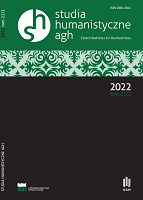Quotation in Social Media: How Sharing Other People’s Words Could Increase Misinformation
Quotation in Social Media: How Sharing Other People’s Words Could Increase Misinformation
Author(s): Agnieszka Kula, Monika GrzelkaSubject(s): Media studies, Communication studies
Published by: Wydawnictwa AGH
Keywords: social media; objectivity; quotation; direct speech; indirect speech; quotation marks
Summary/Abstract: According to the report “We Are Social” (2021), one of the most important reasons why Internet users take to social media platforms are: “stay up-to-date with news and current events”, “seeing what’s being talked about”, and “sharing and discussing opinions with others”. They are all focused on quoting. Our research helped us to confirm the dominance of posts with quotations in social media (the institutional broadcasters’ profiles). Quotation can take various forms to produce different results. Direct quotations include direct speech, text islets, and pseudo-quotations; indirect quotations include indirect speech and narrated speech. Direct quotations in the form of various direct references accounted for 73% of quotations on Twitter and 61% on Facebook. This confirms the tremendous popularity of quotations in direct speech – senders avoid allegations of being partial; after all they show the facts that speak for themselves. It is strategies of the senders which increase misinformation.
Journal: Studia Humanistyczne AGH
- Issue Year: 21/2022
- Issue No: 2
- Page Range: 81-98
- Page Count: 17
- Language: English

